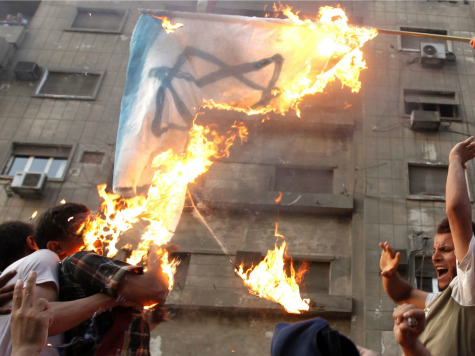
The American Studies Association, the largest association of academics dedicated to the study of American culture, stunned the academic world by approving a boycott of Israel over treatment of Palestinians in Gaza. Harvard and Yale joined this week in condemning the boycott, while other universities are leaving the group altogether.
The ASA cited “Israel’s violation of international law” and “U.S. military and other support for Israel” as reasons for calling its members not to attend events or incorporate Israel in the international academic community. Supporters of the boycott have attacked its opponents’ “rhetoric of assault,” and some even claimed a “significant number of Israeli academics” support the movement of boycotts, divestments, and sanctions designed to rein in Israeli political action in Israel.
Still, the argument that the human rights of Palestinians requires academics to ostracize the Israeli wing of their community has triggered a large backlash from many in the highest levels of academia.
The Ivy League has almost universally condemned the ASA. The office of Harvard President Drew Gilpin Faust issued a swift and brutal statement on the resolution, condemning it as dangerous to the advancement of academic goals. The two-sentence statement lauds the academic encouragement of “free flow of ideas,” condemning the ASA for a move that “represents a direct threat to these ideals, ideals which universities and scholarly associations should be dedicated to defend.”
In an unofficial albeit corroborating statement on Harvard’s attitude towards boycotting a nation in such a way, President Faust’s predecessor, former Harvard President Larry Summers, told Charlie Rose earlier that he considered such boycotts “anti-Semitic in their effect, if not necessarily in their intent.”
Yale President Peter Salovey echoed these sentiments, arguing that “any attempt to close off discussion or dialogue among scholars is antithetical to the fundamental values of scholarship and academic freedom” in his statement. Princeton President Christopher Eisgruber called the boycott “indefensible,” adding that his support of academic work with Israel and Israeli scholars was “enthusiastic and unequivocal.” Eisgruber stopped short of suggesting Princeton leave the ASA, as did Faust and Salovey; however, he went a step further in expressly refusing to “denounce” the group, believing that to do so would be to repeat the group’s own mistake.
The boycott has led to a significant rift in the academic community. While more than two thirds of the group voted in favor of the boycott, many of its biggest names are actively distancing themselves from the decision. Brandeis and Penn State Harrisburg have left the ASA altogether. Sixty-two American and Canadian universities have banded together to call publicly for a rejection of the boycott. An appalled Washington Post editorial board called the boycott “utterly narrow-minded” and proceeded to list nations with far more egregious human rights abuses than Israel.
If the members of the American Studies Association sought to spark a flame in the debate over how to approach the situation in Israel, they have succeed. Unfortunately for them, however, it appears that many of their colleagues disagree with their approach and have been inspired to announce their support for Israeli academics even more vocally, with ever more universities and scholars coming out in opposition to the boycott.

COMMENTS
Please let us know if you're having issues with commenting.